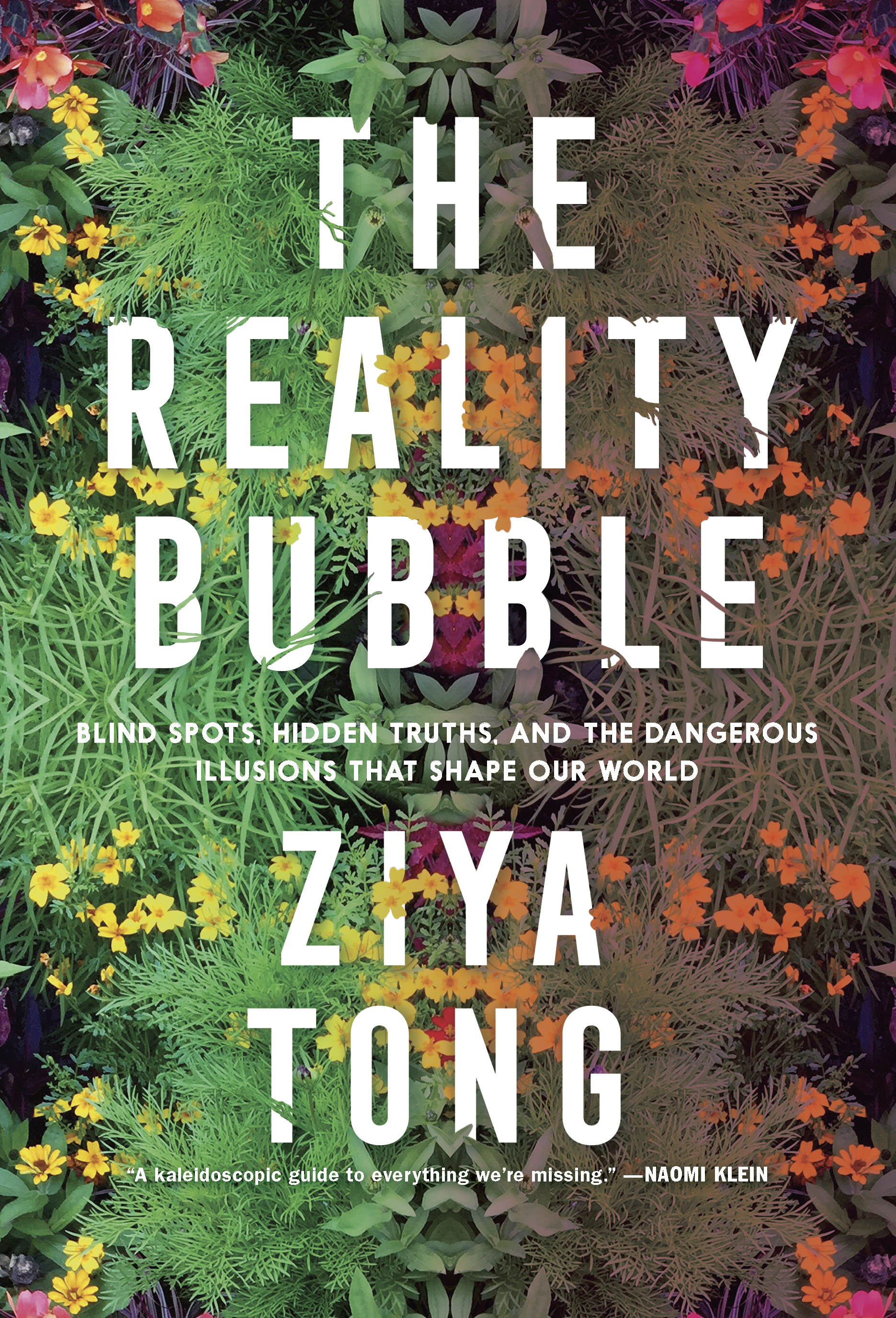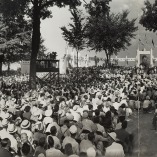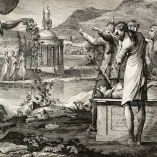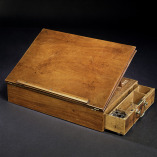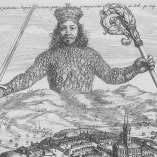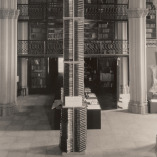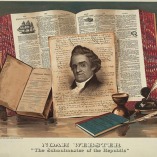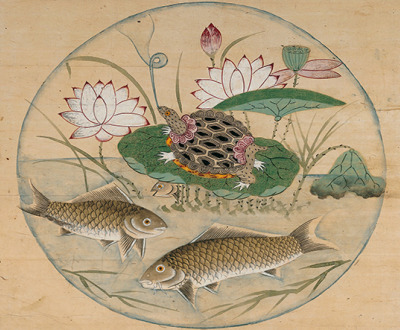
Lotus and Fish in Rondel, nineteenth century. Minneapolis Institute of Art, Mary Griggs Burke Collection, Gift of the Mary and Jackson Burke Foundation.
“The philosopher Ludwig Wittgenstein once said that ‘the aspects of things that are most important for us are hidden because of their simplicity and familiarity.’ Put another way,” Ziya Tong writes at the beginning of her book The Reality Bubble, “we often can’t see what’s right in front of our noses. We’ve all experienced it: looking everywhere for your keys when they are staring right at you from the kitchen counter. Individually, we can be blind to the obvious, but collectively, as a society, we can be blind as well. Here’s a curious fact to consider: in the twenty-first century, there are cameras everywhere, except where our food comes from, where our energy comes from, and where our waste goes. How is it, then, that the most powerful species on the planet is blind to how it survives?”
From the discoveries of Antonie van Leeuwenhoek and Galileo, we humans have learned that, as Tong says, “in essence we are microscopic giants—we live in worlds that are much larger and much smaller than the realities that we are able to perceive.” On this episode of The World in Time, Lewis H. Lapham speaks with the former anchor of the Discovery Channel’s Daily Planet about prairie dog barks, dissecting a chicken nugget, and how we measure time, among other subjects.
Lewis H. Lapham talks with Ziya Tong, author of The Reality Bubble: Blind Spots, Hidden Truths, and the Dangerous Illusions That Shape Our World.
Thanks to our generous donors. Lead support for this podcast has been provided by Elizabeth “Lisette” Prince. Additional support was provided by James J. “Jimmy” Coleman Jr.
